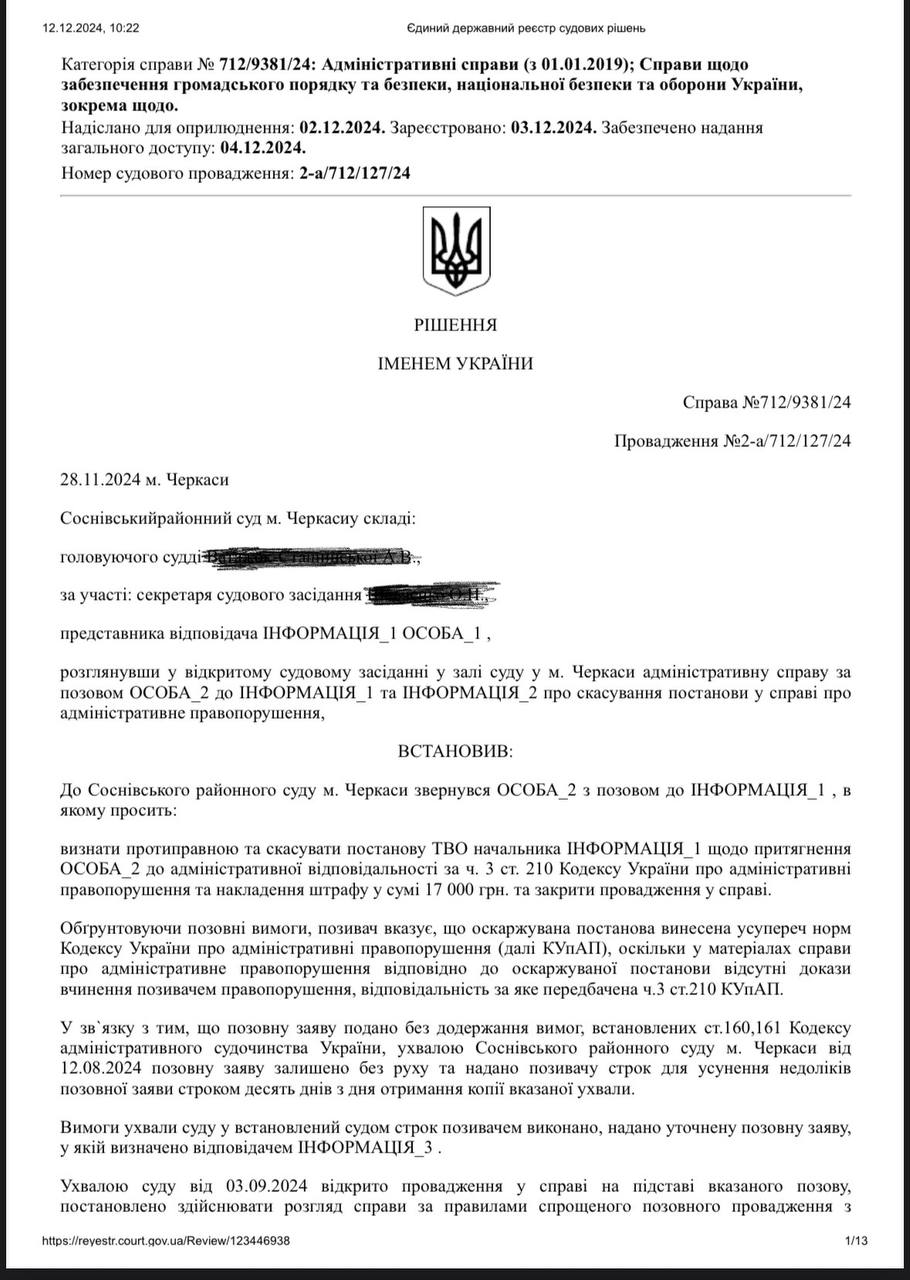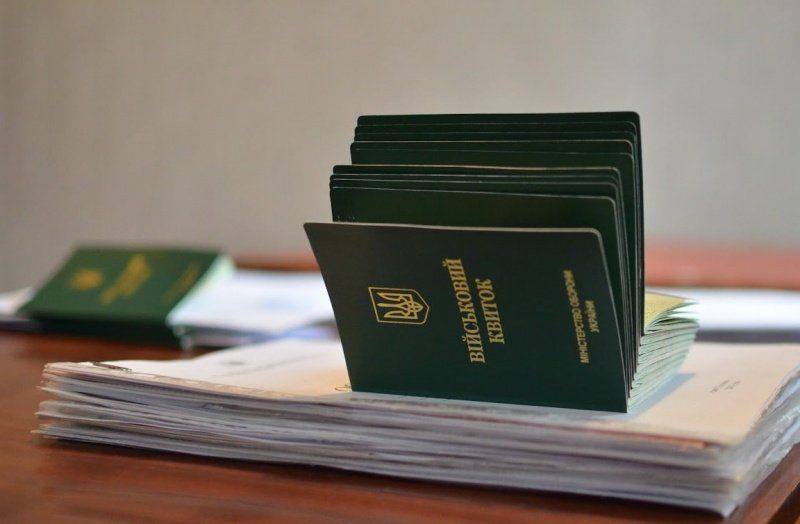Graduated from Yaroslav Mudryi National Law University in 2015 with a Master of Laws degree. From 2015 to 2023, worked as a legal counsel at a private law firm, specializing in commercial, administrative, and civil cases. Currently (2024–2025) in the process of obtaining a license to practice law as an attorney. Also completed training and internship to qualify as an insolvency practitioner (arbitration manager).
Defense in a Military Registration Violation Case: Legal Case of Attorney Alina Rachkovska
During mobilization, compliance with military registration rules gains critical importance. However, even under complex circumstances, every individual has the right to legal defense and a fair trial. This case illustrates how attorney Alina Rachkovska represented a citizen fined under Part 3, Article 210 of the Code of Ukraine on Administrative Offenses (CUoAO) for failing to present a military ID during an inspection.
Case Background
The plaintiff was held administratively liable for violating military registration rules. The essence of the accusation was failure to present a military registration document on July 26, 2024. The imposed fine amounted to 17,000 UAH. The citizen turned to attorney Alina Rachkovska for assistance in appealing the administrative ruling.


Legal Defense Strategy
1. Analysis of Electronic Evidence
- It was proven that the plaintiff had updated his registration data via the "Reserv+" system before July 15, 2024
- At the time of the inspection, he had a valid electronic military ID
- The physical document was not issued due to the Territorial Recruitment Center’s failure to provide it — caused by a lack of blank forms
2. Court Arguments and Respondent's Position
- Representatives of the Recruitment Center stated that the individual did not have a physical military ID at the time of inspection
- They also claimed that no request for a physical document had been submitted within the legally prescribed timeframe
- The military ID was only physically issued in September 2024, after the fine had been imposed
3. Court Ruling
- The court ruled that updating data via “Reserv+” does not substitute for having the physical document on hand
- The violation was considered to have taken place
- Formal deficiencies in the ruling (e.g., incomplete reference to the article) were not sufficient grounds for cancelling the fine
Case Outcome and Legal Conclusion
- The fine ruling remained in force
- The court confirmed the requirement to have a military ID on hand during inspection
- The position of the Territorial Recruitment Center was deemed justified
- The court acknowledged the public interest in ensuring compliance with registration during mobilization
Frequently Asked Questions
Question
Is it enough to have an electronic military ID?
Answer
No. The law requires carrying a physical document during inspections in periods of mobilization.
Question
What should I do if the Recruitment Center doesn’t issue the ID due to a lack of blank forms?
Answer
You must submit written requests, document all communications, and obtain official replies or confirmations about the shortage of forms. This may serve as a mitigating factor, but it does not eliminate the obligation to carry the document.
Question
Can an administrative ruling be appealed?
Answer
Yes. If you believe the ruling was issued unlawfully, consult a legal professional who can help gather evidence, prepare a claim, and file it within the designated timeframe.
This case demonstrates that even with timely data updates and objectively justified delays in receiving a physical document, the legal obligation to carry a military ID remains in force. Alina Rachkovska made every effort to present the full picture to the court, provided legal support to her client, and ensured proper preparation for trial.
Her work is an example of qualified legal assistance in the context of increased legal responsibility during mobilization. It is vital that citizens are aware of their rights, and that the state ensures transparent mechanisms for their realization. When administrative infrastructure fails to issue documents on time, legal mechanisms should be developed to account for such situations. Legal practice must adapt to new realities, and this case is a clear illustration of modern legal work under challenging conditions.

































